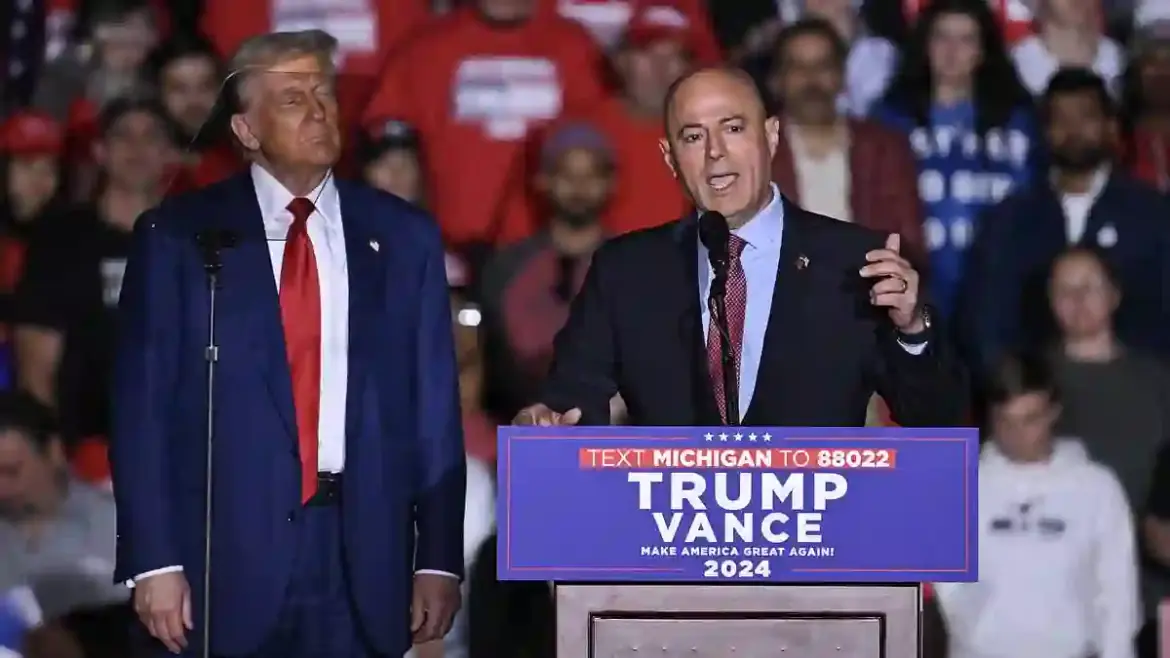A new initiative in Dearborn Heights, Michigan, quickly turned into a political headache after the city introduced a police badge featuring Arabic script.
The badge, intended to be optional, ignited debate and confusion across the community and beyond.
Mayor Bill Bazzi Walks Back the Decision
The backlash came swiftly, prompting Mayor Bill Bazzi, who was born in Lebanon and famously endorsed Donald Trump in 2024, to distance himself from the badge.
Local police confirmed that the Arabic-script badge was never meant to be official.
“The design mock-up idea showed the words ‘Dearborn Heights Police’ in Arabic and was said to be optional,” the department said in a Facebook statement.
The patch was simply part of internal discussions and was not formally approved.
Bazzi added, “Should efforts like this be formally undertaken to make any changes to the police uniform, it is our goal to include multiple PD stakeholders for a larger conversation…each individual’s uniform represents the DHPD as a whole and therefore merits review and input from all.”
Dearborn Heights and Dearborn’s Unique Demographics
The cities of Dearborn Heights and neighboring Dearborn are home to some of the largest Muslim populations in the U.S., with around 39 percent of Dearborn Heights residents identifying as Middle Eastern or North African.
This demographic context helps explain why the Arabic badge idea emerged, though it also sparked national attention and criticism.
Historical and Political Context
Dearborn itself has a history of making headlines for its Muslim population.
It was previously labeled the U.S. “Jihad Capital” by The Wall Street Journal and saw protests last year at a pro-Palestine rally where demonstrators chanted anti-American slogans.
In 2024, Donald Trump won Michigan, attending a campaign event in Dearborn Heights alongside Mayor Bazzi and local Imam Belal Alzuhairi.
Speaking to a few thousand supporters, Alzuhairi praised Trump for promising peace, stating, “The bloodshed has to stop all over the world… I personally believe that God saved his life twice for a reason.”
Local Voter Divisions Over Gaza
Despite initial enthusiasm among some voters, the ongoing war in Gaza created deep divisions within the community.
Many abstained from voting in the primaries, uncertain about the U.S. role in the conflict.
Supporters like Ibrahima Duhaini initially backed Trump for his promises of peace, but later reconsidered after hearing about his “Trump Gaza” redevelopment plan.
Trump’s Controversial Gaza Proposal
Trump’s plan envisions a U.S.-led initiative in Gaza following the end of the Israel-Hamas war, describing it as a “Riviera of the Middle East.”
He outlined this vision at a press conference with Israeli Prime Minister Benjamin Netanyahu, stating, “The US will take over the Gaza Strip, and we will do a job with it too.”
The proposal drew swift criticism from international lawmakers and analysts, who fear it could forcibly displace Gaza’s two million residents.
Many in the U.S. expressed concern that the plan could entangle the nation in a highly volatile occupation.
Back to the Badge Debate
Amid all the global political chatter, the original Arabic badge controversy serves as a reminder of how symbolic gestures can ignite local and national debate.
What started as a small, internal design discussion quickly became a headline-making controversy, forcing officials to clarify intentions and backtrack in the face of public scrutiny.
